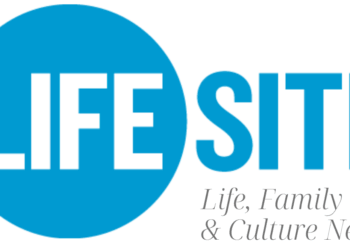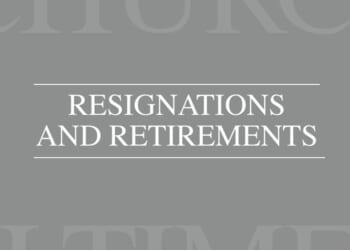Carol D. Leonnig and Aaron C. Davis, two reporters for the Washington Post, wrote a new book about Jack Smith’s prosecution of Trump in Florida. These sorts of “inside look” books are always intriguing, but it is important to keep in mind who has the greatest incentive to talk to the press: people who are unhappy that their preferred outcome didn’t happen. Everything in these books should be taken with a mound of salt.
The duo published an excerpt from the book, which includes this note on sourcing:
The account is drawn from interviews conducted for the book “Injustice,” including with senior officials in the Trump and Biden administrations, government prosecutors and federal agents, as well as outside advisers who were firsthand witnesses to one of the most challenging periods in Justice Department history. Many people agreed to be interviewed only on the condition of anonymity because they feared damage to their careers or retribution from those angered by their candor.
I don’t think these prosecutors are just afraid of retribution from Trump and Republicans. I think they are also afraid of retribution from Democrats as well. Look at what happened to those who spoke out against Biden’s decision to stay in the race. And we haven’t even started talking about the Autopen.
There is much here to cover.
First, Smith decided to bring the case in Florida rather than in DC. There were concerns that Trump would likely move to change venue, and any verdict could be overturned on appeal.
Curiously, Garland was not interested in the merits of the case, but was interested in whether Cannon would draw it:
Smith soon shared the prosecution memo with the attorney general’s office, and a few days later he went to discuss the plan with Garland in person. The attorney general was known to get into the minutiae of some cases, but he didn’t raise issues with the evidence or strength of the case. However, he did want to know more about the decision to seek an indictment in Florida. Smith and his team explained their analysis.
Yet, we learn that Jack Smith doesn’t know how to forum shop. Specifically, he failed to accurately calculate the likelihood that Judge Cannon would draw the case:
Senior counselors followed up with Smith’s staff and in the following days reported back that the concerns seemed sound. Some members of Smith’s team, they reported, had also analyzed the likelihood Cannon would get the case, calculating the odds that she would be randomly assigned to oversee it at just 1 in 6.
But before a final decision was made, the team members realized they had not fully accounted for a key factor: judges’ caseloads in the Florida district. Reexamining the pool of potential South Florida judges, they found that some judges located closest to Mar-a-Lago did not work full time or had trials scheduled that would limit their availability.
The real chance of drawing Cannon was far higher, nearly 1 in 3, they calculated.
Amateur move. Strategic litigators on both sides of the aisle keep very detailed statistics about how district court assignments work. These processes factor in the type and amount of cases that senior status judges draw (some senior status judges only take criminal or civil, but not both). These processes also look at a judge’s caseload, to determine if they might request fewer cases. Some savvy lawyers even keep tabs on when judges announce they are taking vacations. I am very surprised DOJ did not have this skillset on board. Maybe the fact that the special counsel office is siloed from DOJ limited their access to this information. Or, DOJ may be so DC-focused, they don’t pay attention to assignments in the hinterlands.
Second, we learn some details about Jack Smith’s taking of the oath. The circumstances of this oath have always been shrouded in some secrecy. I know there have been FOIA requests about it.
Trump’s announcement the next day that he would seek another term sent Garland’s office right back to Smith. But the attorney general’s senior staff recognized a potential issue. Following the operation, Smith had been prescribed powerful painkillers, and they worried the sedatives could compromise Smith’s ability to legally take the oath of office. Smith decided to leave no doubt about his mental state: He discharged himself from the hospital against doctor’s orders. At home, he went cold turkey, taking no prescription drugs before Garland announced his appointment on Nov. 18.
I guess he took the oath in the Netherlands? Who administered the oath, we do not know.
Third, after Judge Cannon found that Smith’s appointment was unlawful, he asked Solicitor General Prelogar for permission to appeal, which she granted. And Smith also asked for permission to ask the Eleventh Circuit to remove Judge Cannon.
In August 2024, as Smith and his team were finishing up their appeal of Cannon’s ruling, he had also secretly concluded that Cannon should be removed as the presiding judge. Smith presented the appeal to Solicitor General Elizabeth B. Prelogar for her approval, as special counsel regulations required. He also asked her if he could seek to have Cannon removed by the appellate court, an unprecedented move for a special counsel. . . .
Prelogar approved the appeal of Cannon’s ruling but rejected Smith’s plan to seek the judge’s removal, saying he didn’t have a strong enough basis to do so. Smith decided not to ask Garland to overrule Prelogar. If Smith had asked and Garland then turned him down, the Justice Department would have been required to notify Congress, and the disagreement would have surely become public.
I had long wondered whether Prelogar approved the appeal. It is said that the Special Counsel is “independent.” But this is not true. Under DOJ regulations, the Solicitor General must approve any appeal. So yes, the Biden Justice Department did approve this appeal to the Eleventh Circuit. It is balderdash that political appointees were not involved in the prosecution against Trump.
The request to remove Cannon makes little sense. At this point, there was a final judgment, and the case was bound to the Eleventh Circuit and then to the Supreme Court. A remand to Judge Cannon could be more than a year away. Why would he want to remove her at this juncture? The higher court would either affirm or reverse the merits ruling.
Finally, Smith didn’t need to ask Garland for permission. It is very likely that SG Prelogar asked AG Garland for his opinion. If so, there is a clear workaround to the rules concerning the interactions between the AG and Special Counsel.
There is another issue here that is not addressed. Judge Cannon found a violation of the Appointments Clause. She also found that there was not a valid appropriation for his prosecution. Smith did not seek a stay of that ruling. Therefore, every dollar spent after Judge Cannon’s ruling, arguably, was unlawful. I do not know if there may be an Anti-Deficiency Act violation, or perhaps a possible qui tam action.















